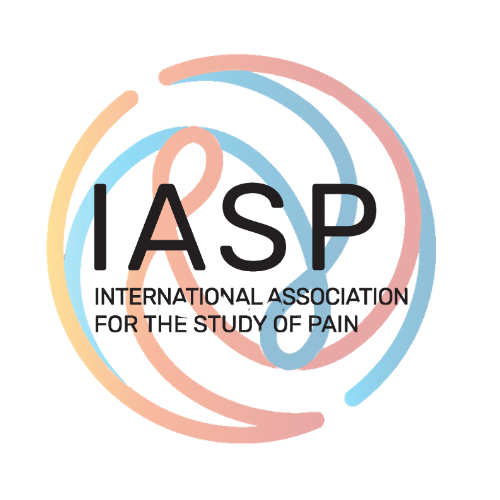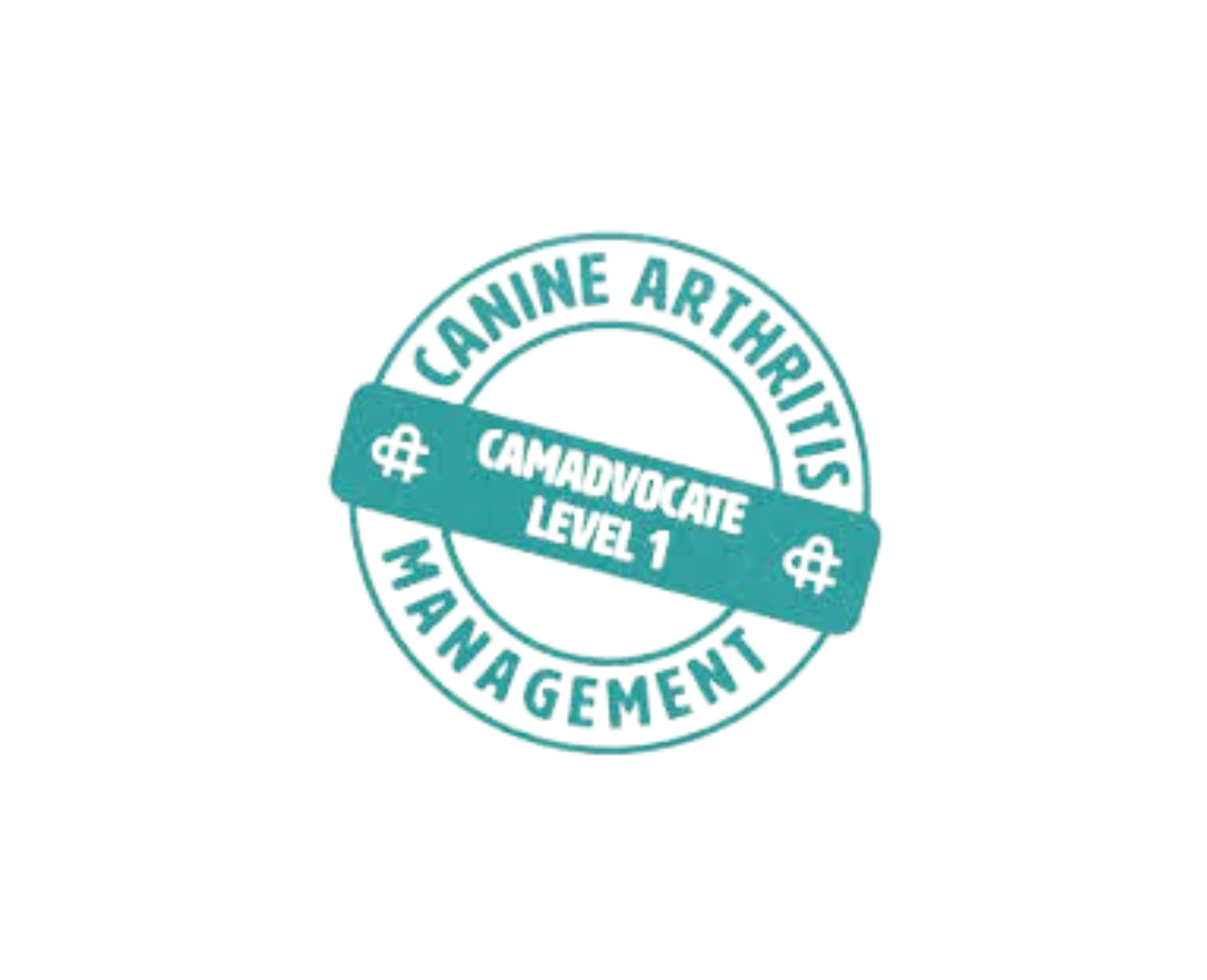Librela, Wonder Drug?
Yasmin Porritt • April 16, 2024
Have we found our silver bullet for OA pain?
If you’ve found this blog you will know by now that I’m a Canine Vet Rehabber. I want to bring together my experience with this drug, what the research is telling us and what leading experts in Veterinary Rehabilitation have to say. My opinion is just that, an opinion. I’m not here to tell you what to do, just share my thoughts on this drug to help Pet Parents make informed decisions when it comes to OA pain management.
One of the most hotly debated topics in Veterinary Rehabilitation, is Librela THE answer to our pain management prayers?
Is it too good to be true or do I need to stop being so cynical?
Is it too good to be true or do I need to stop being so cynical?
What is Librela?
Librela is a medicine designed to alleviate the pain associated with osteoarthritis (OA) in dogs. This solution is injected under the skin, and dosage is dependent on your dog's weight. This injection is usually administered once a month on a recurring basis.
How does it work?
Nerve growth factor (NGF) is a naturally occurring protein that is involved in many biological activities in the body from pain signalling to regulation of growth. Librela’s active ingredient, Bedinvetmab, is designed to bind with canine NGF and prevent communication with its receptors. In Librela’s case the aim is to interrupt pain signals, relieving the dog's sensation of pain.
What are the benefits?
- EFFECTIVE at relieving pain!
- Vet’s don’t have to worry about treatment compliance because they are the only ones who can administer this medication.
- Monthly treatments, also mean monthly checkups with your Vet on treatment progress.
- Results anecdotally seen quickly, research says around a month.
What are the risks?
Side effects are a risk with everything we do in life, and it can be difficult to pinpoint if particular symptoms can be attributed to Librela. Usually, the demographic for dogs who are a candidate for this treatment will also have other pathologies as well as OA. Some of the side effects that have been reported,
- Rapidly progressive osteoarthritis
- Systematic disorders: lack of efficacy, polydipsia, death, lethargy, anorexia
- Renal and urinary tract disorders: polyuria, urinary incontinence
- Digestive tract disorders: diarrhoea, vomiting
- Neurological disorders: ataxia, seizures
Another side effect that I have seen and heard of is itching. I am yet to find any official reports of this. If your dog is on Librela or indeed any drug, any negatives should be reported to your Vet in order for them to relay this back to the manufacturer.
My thoughts
Librela came to the UK market in 2020 and in the USA 2023, so we are yet to understand the long-term effects of this drug. What we do have are current side effects, well the ones that have been reported. This in no way detracts from those who have suffered a devastating loss following Librela treatment, if this happened to my dog I too would be shouting from the rooftops. We need to keep listening to ALL experiences, the good and the bad.
Although my listed benefits are significantly shorter than the risks involved, please don’t let this distract away from how amazing Librela is for incredibly painful dogs. Relieving a dog from osteoarthritic pain is phenomenal and it can be life-changing for certain pain management cases.
What does a leading Holistic Vet have to say?
Well you can blame Dr Edward Bassingthwaighte for kick starting my obsession with silent pain. He has a fabulous free lecture on this topic, which I would thoroughly recommend. In his write up on Librela he says,
What does a leading Holistic Vet have to say?
Well you can blame Dr Edward Bassingthwaighte for kick starting my obsession with silent pain. He has a fabulous free lecture on this topic, which I would thoroughly recommend. In his write up on Librela he says,
Stage four for me is when we throw the kitchen sink at the dog because we are only focused on quality of life, and keeping him going in as much comfort as possible for as long as possible. I’d include opiate drugs and Librela in this stage. I might also consider Librela in late stage 3 if all other options have been exhausted." (Bassingthwaighte, 2023)
What does the ‘Godfather of Vet Rehab’ have to say?
Any rehabber will know the legend Darryl Millis, I had the opportunity to speak to him but chickened out!
Side note, ask for the selfie next time!
Anyway, he concludes in his lengthy write-up on Librela,
Side note, ask for the selfie next time!
Anyway, he concludes in his lengthy write-up on Librela,
“My concerns are that other available treatments may be more effective, treatment of early osteoarthritis may result in reduction of joint position awareness, potentially increasing the progression of osteoarthritis, and there is the possibility of neurologic side effects.” (Millis, 2023)
Is there a human equivalent to Librela?
Nope, there isn't.
NOAH, is a public access website containing current data sheets for licensed Veterinary medicine. They state,
"In clinical trials in humans, rapidly progressive osteoarthritis has been reported in patients receiving humanised anti-NGF monoclonal antibody therapy. The incidence of these events increased with high doses and in those human patients that received long-term (more than 90 days) non-steroidal anti-inflammatory drugs (NSAIDs) concomitantly with an anti-NGF monoclonal antibody.
Dogs have no reported equivalent of human rapidly progressive osteoarthritis." (NOAH, 2024)
We are the same on a cellular level, a lot of human medicine crosses over into Vet medicine. Not the 'joint trashing' though... I mean I don't want to get my tin foil hat out on this one, but I have one for you too if you would like to borrow it.
Mike drop
Well what I have been thinking for YEARS has now come into fruition with the latest research from Dr Mike Farrell and a panel of experts. Musculoskeletal adverse events in dogs receiving bedinvetmab (Librela), Farrell, M et al. 2025
This paper reviewed 19 case studies with a variety of adverse events seen, one of these you can see in the image below which I don’t think needs any further explanation. This paper is a call to action, report ANY suspected side effects. Did you know it’s not just your Vet that can report to VMD but pet parents and professionals! RPOA is horrific but the scary thing is we don’t FULLY understand the mechanism of why this is occurring, or the plethora of neurological events.
Not only this but the panel performed a Pharmacovigilance analysis. This involves reviewing how data is collected and assessed when it comes to reporting adverse events. The creators of Librela (Zoetis) have been downgrading adverse events reported by Vets.
This can be likened to a report of a bone cancer being listed as a stubbed toe, (I made this up for illustrative purposes)
Mike drop
Well what I have been thinking for YEARS has now come into fruition with the latest research from Dr Mike Farrell and a panel of experts. Musculoskeletal adverse events in dogs receiving bedinvetmab (Librela), Farrell, M et al. 2025
This paper reviewed 19 case studies with a variety of adverse events seen, one of these you can see in the image below which I don’t think needs any further explanation. This paper is a call to action, report ANY suspected side effects. Did you know it’s not just your Vet that can report to VMD but pet parents and professionals! RPOA is horrific but the scary thing is we don’t FULLY understand the mechanism of why this is occurring, or the plethora of neurological events.
Not only this but the panel performed a Pharmacovigilance analysis. This involves reviewing how data is collected and assessed when it comes to reporting adverse events. The creators of Librela (Zoetis) have been downgrading adverse events reported by Vets.
This can be likened to a report of a bone cancer being listed as a stubbed toe, (I made this up for illustrative purposes)
Conclusion
In conclusion, does Librela have its place in a pain management plan?
For me, it absolutely does… in certain circumstances. Librela IS effective at relieving pain, but at
what cost? This drug is so over-prescribed for EVERYTHING when (IMO) it should be used in end stage OA with no neuro conditions.
- All other pain medication options have been explored and suitable ones trialled. Librela shouldn’t be (IMO) the first port of call when starting a pain management journey. If and when the efficacy dips, what else do we have to fall back on?
- Things that a Pet Parent can manage such as weight control, lifestyle changes and exercise should all be fine-tuned before considering
It is far too easy to make bold sweeping statements of I will NEVER use Librela, I think in fairness we need to consider what this drug is
actually doing on the front line of veterinary medicine. I’ve seen dogs have the last 6 months of their life changed for the better with
Librela, something we never could have achieved even with the cocktail of pain medications, physical therapy, nutrition, supplements and lifestyle management. When we’re considering quality of life, surely we want whatever time we have left for them to be comfortable? However for younger dogs, Librela as a first choice drugs for me is unforgivable.
Making an INFORMED DECISION is the most important factor, knowing the RISKS and BENEFITS
Making an INFORMED DECISION is the most important factor, knowing the RISKS and BENEFITS
I would have to be REALLY pushed to use this with my own dogs last-chance saloon sort of scenario with end-stage OA. Anything that is referred to as a ‘wonder drug’ proceed with caution.
This opinion may change, given time for more research… I doubt it, but never say never.
This opinion may change, given time for more research… I doubt it, but never say never.
Love Yaz, Lily, Rodney & Peggy
Resources
https://www.mylamedog.com/post/what-about-librela-anti-nerve-growth-factor-antibody-treatment
https://www.dogsnaturallymagazine.com/librela-berensa-wonder-drug-or-disaster-in-the-making/
https://www.frontiersin.org/journals/veterinary-science/articles/10.3389/fvets.2025.1581490/full
https://www.dogsnaturallymagazine.com/librela-berensa-wonder-drug-or-disaster-in-the-making/
https://www.frontiersin.org/journals/veterinary-science/articles/10.3389/fvets.2025.1581490/full

If you have found your way to Yorkshire Pooches Therapies, you will know that talking all things Canine Pain Management! Below is a list of lectures, online events at YPT and events I'm attending with other companies. Make sure to come back and check this calendar regularly as more things will be added throughout the year! MARCH 2026 05/03/26 - 08/06/26 Crufts, with Photizo (NEC, Birmingham ) APRIL 2026 17/04/26 - 19/04/26 The Dog Behavior Conference, lecturing (Victoria Stilwell Academy, Online) MAY 2026 30/05/2026 You Can't Train Away Pain, lecturing (YPT Education Centre, WF10) JUNE 2026 20/06/2026 - 21/06/2026 APBC Conference, with Photizo (Mecure Daventry, NN1) 30/06/2026 You Can't Train Away Pain, lecturing (YPT Education Centre, WF10) JULY 2026 AUGUST 2026 SEPTEMBER 2026 02/09/26 - 03/09/26 Impact Working Dog Conference, lecturing (Niagara Conference Centre, S6) OCTOBER 2026 17/10/2026 You Can't Train Away Pain, lecturing (YPT Education Centre, WF10) NOVEMBER 2026

In this episode of Hop, Skip and a Jump, Yaz from Yorkshire Pooches Therapies sits down with Sarah from Totally Pawsome Dog Training to talk about the evolving world of ethical, force-free dog training and how behaviour and pain are more connected than many realise. Yaz and Sarah’s professional journey began when Sarah brought her German Shepherd, Mavis, to the Yorkshire Pooches clinic. That partnership soon evolved into a collaborative working relationship, helping dogs whose pain and behaviour issues often overlap. “Nine times out of ten, ” Yaz explains, “these things aren’t isolated, pain changes behaviour.” Sarah’s path into professional training started with a lifelong love of animals. Having worked with horses for years, her natural curiosity about behaviour led her to study to become a Dog Trainer. “It might have been a bit of a midlife crisis,” she jokes, “but it turned into the best decision I ever made.” Like many in the field, Sarah admits she still battles imposter syndrome, the feeling of never knowing enough. Yaz relates, noting the Dunning-Kruger effect, where the more knowledge you gain, the more you doubt your abilities. Both agree that support networks are vital. Sarah and her peers from her training course stay connected through their “virtual staff room” where they share advice, challenges, and plenty of laughs. When it comes to her work, Sarah’s passion lies in understanding the emotional side of behaviour. Her dog Mavis, a sensitive soul, has been her greatest teacher. “She’s taught me compassion, patience, and how much the smallest environmental change can affect a dog’s state of mind” Sarah says. Something as simple as a new floor texture can trigger anxiety, powerful reminders that every dog experiences the world differently. Yaz and Sarah also explore how training philosophies have evolved. Many owners still rely on outdated alpha or dominance-based techniques, often out of habit or lack of awareness. “We were raised that way,” Sarah admits. “But once you know better, you do better.” Both encourage positive reinforcement, rewarding desired behaviours rather than punishing unwanted ones. The pair also touch on affordability and accessibility. Not everyone can afford private training or therapy, and both professionals stress the importance of free educational resources and community support. “Having a team, your village of trainers, therapists, and vets around you is a luxury,” says Sarah. “But good information should never be gatekept.” One thing is clear: the future of dog care lies in collaboration, compassion, and curiosity. Whether it’s recognising pain before it becomes behavioural, adapting training methods, or empowering owners with knowledge, the goal is always the same — helping dogs live happier, healthier lives. Check out the full conversation with Sarah of Totally Pawsome Dog Training

Slatmills are self-propelled treadmills originally popularized in the U.S.A—are now showing up across the UK. Marketed as a great way to “burn energy,” they’re often found in vans, car parks, and even daycare centres. While they may seem like a convenient fitness solution for high-drive or reactive dogs, the real cost of slatmills could be your dog’s long-term health. Amanda is a qualified Galen Myotherapist, running her own business Canine Massage Therapy Essex . As professionals working in canine rehabilitation and functional movement, we see the fallout from these trends in canine exercise. Dogs arrive with chronic strain, movement dysfunction, and even injuries that develop silently over time. Misaligned Equipment, Misguided Intention Let’s start with the equipment itself. Many slatmills use a spring and harness system designed to increase resistance. These springs often sit right in the middle of the dog’s back, applying force through a vulnerable area—where the thoracic spine meets the lumbar. This zone isn’t built for pulling; it's built for flexibility. What About Regulation, Insurance, Oversight? One major concern is the lack of regulation. Who’s supervising these sessions? Do the operators have canine first aid training? Are they insured? Imagine putting a brachycephalic breed—like a Frenchie or a Bulldog—on a slatmill. These breeds are already prone to heat distress, which doesn’t always show up immediately. A dog might collapse hours later with delayed-onset heat injury. If the operator isn’t trained to spot early signs, who bears the responsibility? It’s Not Just About Fitness—It’s About Ethics Let’s be honest: slatmills look appealing. If you’re a pet parent with a reactive dog who struggles off-lead, it can seem like a dream solution. Someone shows up at your house and lets your dog "exercise" in your driveway. But ask yourself: is this truly benefiting your dog, or is it a well-marketed shortcut? This isn’t about judgment. It’s about informed choice. We would never tell someone what to do with their dog—but we will always explain the risks. In the case of slatmills, the risks far outweigh the benefits. Not one qualified physio or vet we’ve spoken to has recommended them. Unlike purpose-built canine treadmills or underwater therapy units—designed and overseen by professionals—slatmills lack safety protocols, movement analysis, and custom programming. Check out the full conversation with Amanda Daniels of Canine Massage Therapy Essex

What began as a pharmaceutical research project aimed at developing a natural anti-obesity treatment soon evolved into one of the UK’s most innovative ventures in canine microbiome health. The team had been exploring compounds in wild spinach and quinoa—but when the next trial phase required testing on caged beagles, they drew a firm ethical line. A chance encounter with Professor Jamie Newbold, a leading expert in ruminant microbiomes, proved pivotal. Why try to force compounds through the gut wall, he asked, when you could explore their effects within the microbiome itself? That question reframed everything—shifting the focus from drug development to gut ecology and the broader ecosystem within each dog, Biome4Pets began! What followed was a leap forward in microbiome testing, driven by technological innovation and real-world curiosity. A once-impractical method of collecting and freezing stool samples at -80°C gave way to biosensor-based kits developed with Professor Chris Gwennon. This made home testing commercially viable and led to the creation of a growing database at Biome4Pets Early findings revealed striking differences across regions. Dogs in Australia, despite strict biosecurity, harboured high pathogen loads—likely due to contact with wild environments. UK dogs, in contrast, showed reduced microbial diversity from over-sanitised living conditions. These insights revealed a core truth: the gut is not just an organ—it’s an ecosystem, constantly shaped by diet, water, medication, and the environment. Take Yorkshire Pooches Peggy, a Romanian street dog who survived in a kill shelter before coming to the UK. Despite no further vaccines after arrival, she remains immune to multiple diseases—thanks to early, diverse microbial exposure. Two fully vaccinated British dogs, by comparison, showed immunity to just one disease. More recently, a growing concern is the rise of cyanobacteria in UK water systems. Changes in filtration—such as the use of certain metals like brass—may be allowing this toxic bacteria to escape treatment. Dogs exposed through drinking water have shown microbiomes overwhelmed by cyanobacteria, leading to malnutrition, acid reflux, and immune dysfunction. It doesn’t stop at physical health. The gut-brain connection in dogs is becoming clearer. Bacteria like Satella—once rare—are now appearing in up to 15% of dogs tested, particularly those on raw diets. These bacteria form biofilm "friendships" with others, strengthening their resilience and possibly contributing to ADHD-like behaviors. Dogs with hypermobility often show gut issues, over-arousal, and obsessive behaviors, pointing to a deeper link between neurodivergence and the microbiome. So, what can pet parents do? One powerful step is to add rosemary to their dog’s diet (unless seizure-prone). This natural herb helps break down biofilms and supports microbial balance. Clean, filtered water is also essential—dogs can detect chemical residues we may not even notice. Ultimately, this journey from drug discovery to microbiome exploration has uncovered one core truth: when it comes to canine health, the gut holds far more answers than we ever imagined. And by understanding this ecosystem within, we’re better equipped to protect the dogs we love. Check out the full conversation with Dr Carol Hughes below. If you want to learn more about how the Microbiome and Pain interlink, be sure to check out Dr Carol's Lecture through YPT Online Training.

This episode of Hop, Skip and a Jump I had the absolute pleasure of catching up with Helen from Roots to Rehab. I first met Helen about a year ago at my seminar, You Can’t Train Away Pain, and right away I knew she was someone who “gets it” – the kind of therapist who puts an animal’s needs first, every single time. Helen runs a mobile underwater treadmill business. Yes, you read that right — a fully kitted-out van with a German-imported treadmill, filters, UV sterilisation, and a whole lot of heart. What struck me most about Helen’s work is her flexibility. If a dog is nervous, she doesn’t force the “rulebook” approach. Measurements can wait; muzzles aren’t used unless absolutely necessary, and if a harness causes discomfort, she’ll adapt. For Helen, each session belongs to the dog — not her, not the pet parent — and she works at their pace. We swapped stories about our favourite kinds of cases. For Helen, it’s the “tough nuts” — the dogs who arrive anxious, defensive, or flat-out refusing to participate. Slowly, through trust and patience, she wins them over. I completely relate. In pain management, a huge part of the job is listening to what the animal is telling you — not just through behaviour, but through tiny changes in posture, gait, and body language. We also talked about one of my favourite geeky topics: why water temperature matters. Cold water tightens muscles and can increase discomfort, whereas warm water relaxes, improves circulation, and sets the body up for healing. We both see too many people promoting cold-water swims for dogs without mentioning the risks — from “swimmer’s tail” to flare-ups in canine arthritis. One of Helen’s most inspiring stories was about “Dotty”, a Dachshund with grade-five IVDD who started completely paralysed in her hind limbs. Through months of tailored hydro sessions — starting with an isolation plate to work just the back legs — Dotty is now walking again in the treadmill, albeit with a slightly wobbly “drunk gait”. That resilience is why I love working with animals; they don’t dwell on what’s been lost, they focus on what’s possible. Consistency was another theme. Whether it’s weekly sessions for spinal cases or gradually moving to maintenance visits every 6–8 weeks, regularity makes all the difference. Sporadic therapy rarely produces lasting change — but when owners commit, the results can be life-changing. The conversation reminded me why I love doing what I do. It’s not just about the hands-on work — it’s about adapting, problem-solving, and giving each dog the dignity of choice in their care. Helen’s van might be mobile, but her ethos is rock-solid: meet the dog where they’re at, and build from there. Catch the full podcast episode below,

In this episode of Hop, Skip, and a Jump, I had the absolute pleasure of sitting down with the incredible Rachel Bean — a registered veterinary nurse, canine first aid educator, and someone who’s shaping standards in the pet care industry. I’ve known of Rachel’s work for a long time, but hearing her story firsthand was inspiring. She started out back in 1994 as a Dogs Trust kennel manager, later training as a veterinary nurse and qualifying in 2001. Even now, she still works in practice, balancing her clinical days with her passion for teaching canine first aid. What began as a few voluntary sessions for RSPCA staff has grown into an Ofqual-recognised qualification — a huge achievement in an industry that, let’s be honest, is largely unregulated. Anyone can call themselves a first aid instructor, but without real knowledge and hands-on experience, the wrong information can be dangerous. Rachel is determined to change that by ensuring the training is accurate and evidence-based, especially for pet professionals like groomers, trainers, and behaviourists. Her work doesn’t stop at the UK border. She’s travelled to Thailand to work with street dogs, to India and Cyprus to support shelters, to Beijing to train local dog trainers, and to Kenya where she worked with Action for Cheetahs. In Kenya, she helped handlers look after detection dogs trained to track cheetah scat for conservation research — a fascinating project that shows just how far her skills can go. One of the most valuable parts of our conversation was Rachel’s update on current heat stroke guidelines. Too often, I still see outdated advice being shared online. Heat stroke is life-threatening, but it’s usually preceded by heat stress — and that’s when we have the best chance to act. CURRENT HEAT STROKE ADVICE WET THEN VET – If you’re near a vet, start cooling the dog immediately, then get there with air conditioning blasting. RAPID COOLING SAVES LIVES – If you’re further away, immerse (not submerge) the dog in the coldest water you have, then transport. Tepid water is not effective enough. For elderly dogs, puppies, or those with serious health conditions, avoid full immersion — wet them thoroughly and use fans or AC instead. Rachel also spoke about cooling coats. They can be brilliant in the right situation, but shouldn’t be used as a free pass to exercise dogs in dangerous temperatures. As someone who works with dogs every day, I know just how differently each one handles heat. Some, like brachycephalic breeds, are more vulnerable, but even the healthiest dog can make poor decisions — like lying in full sun for hours. This chat with Rachel reminded me why I’m so passionate about sharing good, practical information. When accurate knowledge gets out there, it saves lives — not just here in the UK, but all over the world. Check out the full episode below and Rachel Bean RVN's socials FB- https://www.facebook.com/RachelBeanVetNurse/?locale=en_GB Insta- https://www.instagram.com/rachelbeanrvn/?hl=en Website- https://www.vet-on-set.co.uk/

Before we dive into this wound healing protocol, I think it is only right we find out who these tootsies belong to, meet Dorian. Dorian enjoyed an active sporting life, but sadly, following undiagnosed OCD and two failed orthopaedic implants, he had to have his LHL amputated. Dorian’s pain management is complex given his history and current pathology, so he is monitored closely. His current management involves regular massage, Photizo, analgesia, homoeopathy and lifestyle management. Dorian still lives a full, active life and when a sore appeared on his LFL digit we created a bespoke healing plan.

To cut a long story short, YES people will listen. The picture above was my first cohort of CANINE PAIN WARRIORS! You Can't Train Away Pain, is my exclusive in-person full-day seminar, and we dive into some pretty heavy topics. 🐩 Canine Anatomy, looking at whole body systems and how they can influence the pain experience. 🐾 Common MSK conditions, understanding these pathologies through X-ray images and more. 🐕 Identifying gait abnormalities, getting to grips with the biomechanics of the canine. ⚡ Mechanics of pain, from sensory input to processing in the CNS, how a pain experience occurs. 🐕🦺 Behaviour & Pain, an in-depth look at the biopsychosocial model and how we can apply this to dogs. 📚 Case studies, group work to cement the day's learning. This course lasts 5 hours and builds attendees from the ground up to understand the complex tapestry of the canine pain experience. To get through this day and present sound case studies at the end had me dubbing attendees as WARRIORS. I hope to inspire passion and curiosity, because our dog's and the ones we work with deserve the best. Here is a list of Canine businesses that are YPT Certified Canine Pain Warriors Confident Canine Coaching Academy Hurley's Grooming Salon and Training Academy Focus Dog Training The Bearded Pooch Roots to Rehab Wild Paw Dog Training Holistic Hounds and Other Animals Lead The Way Wirral The Underdogs Training Dames and Dukes Dog Grooming S erenity Canine Therapies Big Paws Little Paws Grooming Salon Rebecca The Dog Trainer Nourish & Nosh Holistic Pet Shop Rudi's Canine Coaching Scentsational Dogs Deborahs Dogs The Travelling Trainer If you would like to attend this exclusive in-person seminar, keep an eye on the events page for upcoming dates.

I'm a Yorkshire lass through and through. A spade is a spade. Pain is pain. A bargain is a bargain! I'm SUPER careful about the brands that I will associate myself with, I have a responsibility to pet parents who interact with Yorkshire Pooches Therapies. I want to ensure that what you invest in is cost-effective, actually effective, and tested with my own dogs. Below are links to companies who I have discount codes for, some of these I receive kickback and others I don't. I can assure you I'm not buying my second home in Portugal, it 100% goes towards my dogs haha! Aniforte discount code - YSPOOCHES10 Aniforte has a great range of natural supplements, some of my favourites being German Moor Mud , Green-Lipped Lipped Mussel Powder and Algae Oil . Get yourself a cheeky 10% off Antinol discount code - YPT5 I can confidently say this is the best green-lipped mussel extract on the market, with clinical studies too! Treat your pooch to 5% off for a starter pack or one-off purchase. Oh so precious discount code - YP10 I am so sentimental so of course I fell in love with this range of pet keepsakes, teat yourself to 10% off. Happy shopping, Love Yaz, Lily, Rodney & Peggy xx

Charlotte is a Veterinary Physiotherapist at Raybrook Veterinary Physiotherapy specialising in canine rehabilitation with a keen interest in holistic care. Charlotte focuses on providing a consent based approach to her work, with remedial exercise programmes tailored to each individual dog. Charlotte works in partnership with Yorkshire Pooches Therapies as the resident Online Veterinary Physiotherapist to bring together a multi-modal team of canine professionals. Having experience and knowledge of orthopaedic, neurological and soft tissue cases, Charlotte has brought together her knowledge and expertise to help better musculoskeletal health and improve quality of life. Dogs of all shapes, sizes, breeds, ages, capabilities and temperaments are all welcomed with the same enthusiasm and dedication when planning individual exercise programmes. Charlotte prides herself on delivering a thorough assessment to ensure all dogs receive care specific to their needs, ensuring the best outcome for your dog. Learning is a continual and important skill as a Veterinary Physiotherapist, alongside her postgraduate qualification in Veterinary Physiotherapy, Charlotte has continued her study of: - Joint supplements - Current and Ethical Pharmaceuticals - Kinesiology taping - Canine Behaviour - Stem Cells - Force Free training and Practices - Natural and fresh feeding - Canine Conditioning Charlotte is a member of the National Association of Veterinary Physiotherapists and fully insured. This ensures that services provided are of the highest standard and are in accordance with current legislation. Charlotte has a dog of her own, a rescue Samoyed named Kiba. Kiba’s own rehabilitation process fuelled her passion for physiotherapy and patient centred care. Charlotte is a strong believer in age not being a disease and has a soft spot for her golden oldies. Who is YPT Online Veterinary Physiotherapy for? Many of the pooches that attend clinic can sometimes struggle to allow new people into their trusted circle. Yaz is very honoured to be part of this circle, but alas Canine Massage is just one component of the team. Multimodal management and collaborating with other Veterinary professionals is a great way to make the most of a Pain Management plan. Charlotte, registered Veterinary Physiotherapist and joining the YPT team is a way to expand this team of professionals, without having to leave the comfort of your home! This service is exclusive to YPT in-clinic customers , Yaz and Charlotte will collaborate on individual cases combining knowledge to create a bespoke plan for your pooch. Your dog must have been seen within the last 6 months in clinic to be eligible for this service. Which service do I pick? Initial Assessment - £75 Charlotte will deep dive your dogs current Pain Management plan and identify areas of focus. Your dog’s bespoke Remedial Exercise Plan will be emailed to you with 7WD, containing specific exercises, and guidance for the next 4 weeks. Follow up Session - £55 Charlotte will review how you have progressed through your 4 Remedial Exercise Plan. You will then receive an updated Remedial Exercise Plan for your next 6 weeks. What to expect from your YPT Online Veterinary Physiotherapy session Appointments are held over Google Meet video call, you will receive a link for this 1WD prior to you scheduled appointment. YPT Online Veterinary Physiotherapy Checklist - Drop Charlotte an email at charlotte@yorkshirepooches.co.uk to arrange a suitable time and date for your session That’s it! Once we have the paperwork Yaz and Charlotte will sort the rest!









